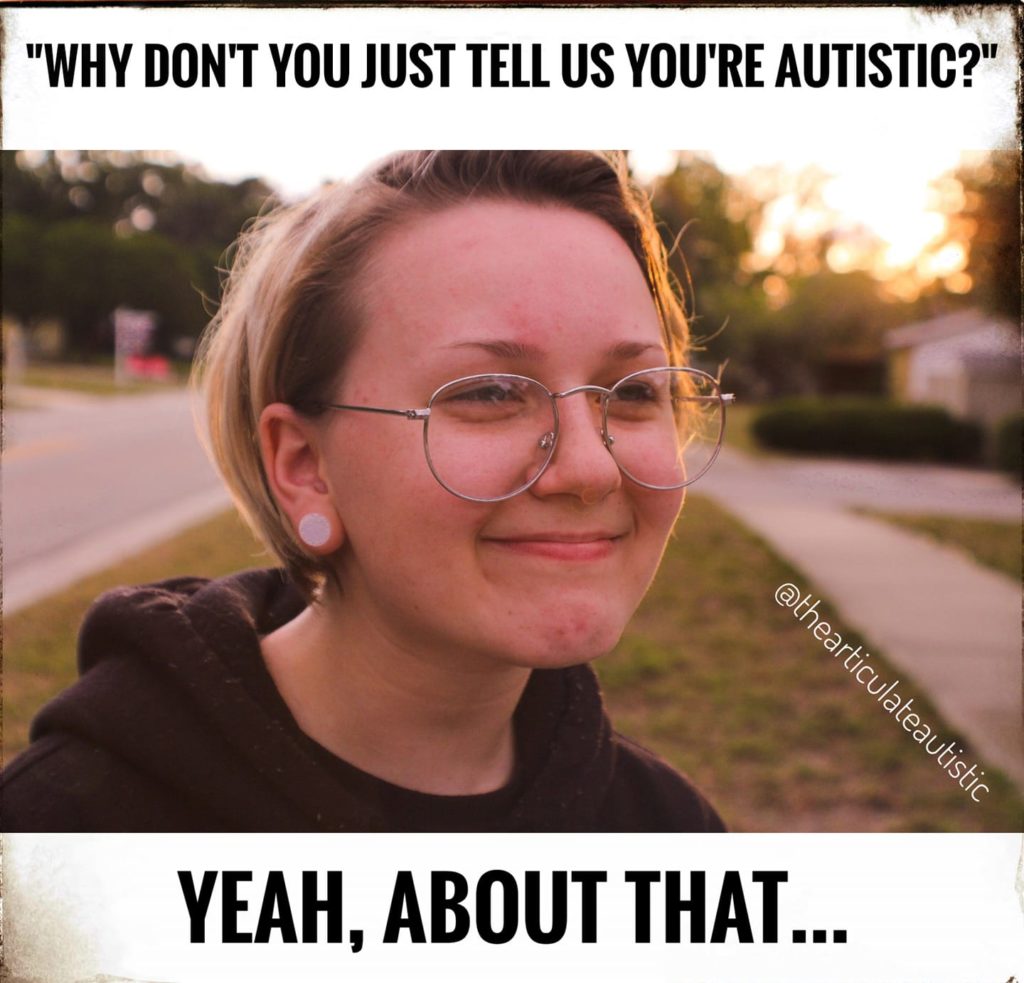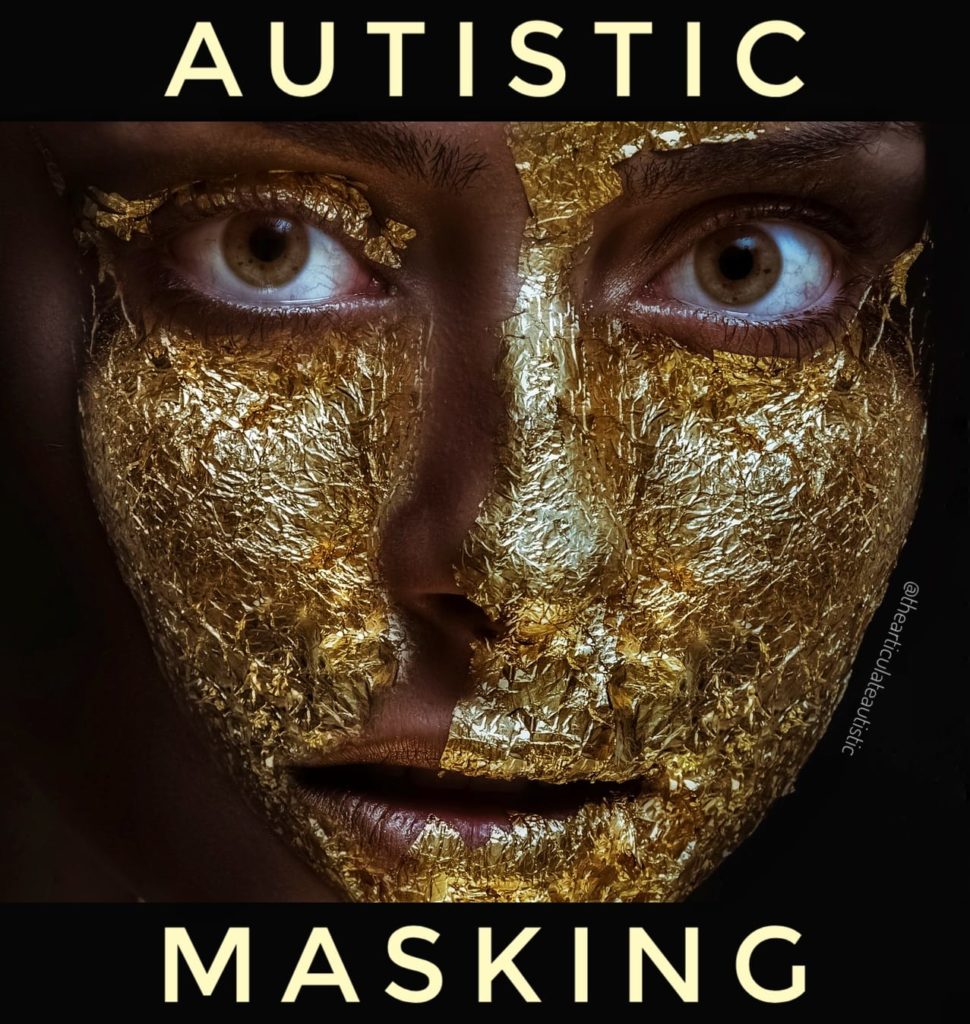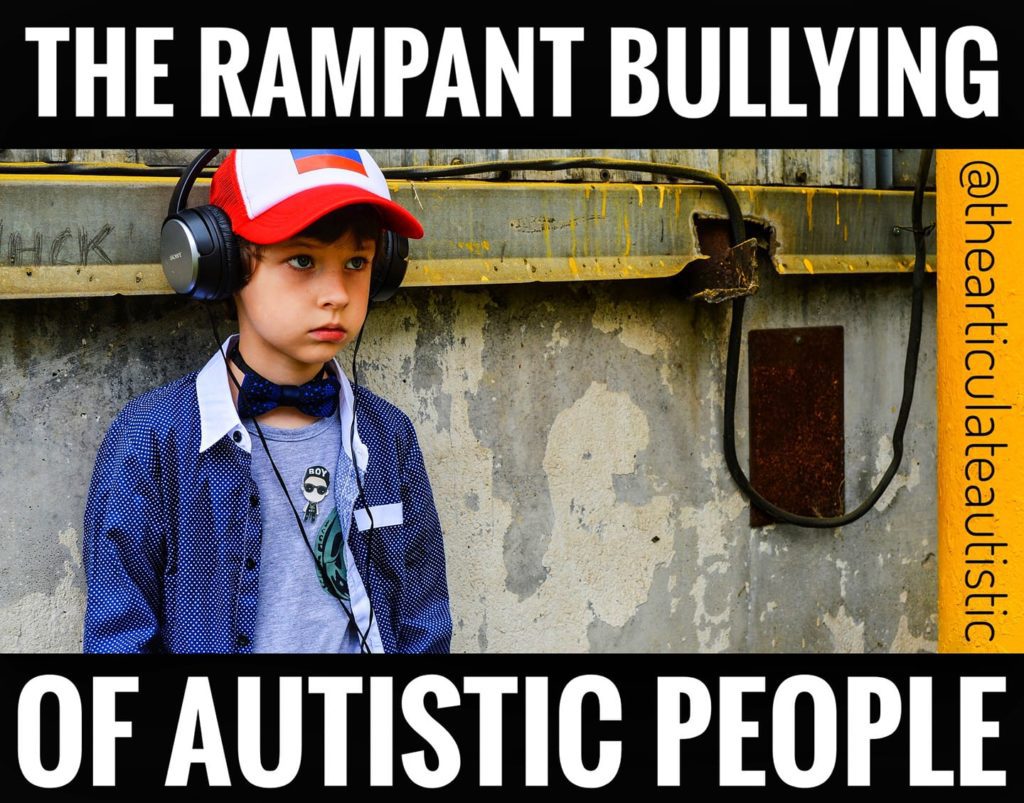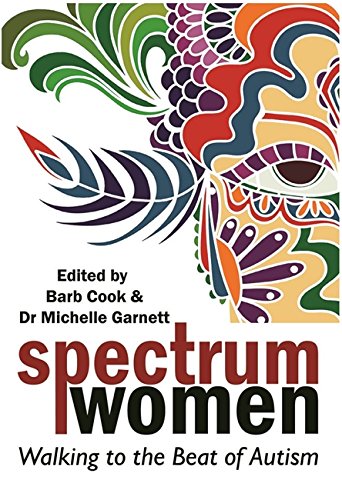Why Some Autistic People Will Not Disclose They Are Autistic (Even to Avoid Communication Struggles)

“Why don’t you just tell us you’re autistic?”
I’ve had a few well-meaning neurotypicals ask me this question on posts where I give examples of how difficult it is for autistic people to navigate neurotypical conversations and social expectations.
The logic is, “If you tell us, we’ll know and understand your behavior.”
*wince* Yikes! That actually makes me want to jump into a hole and pull the opening in with me.
Here’s why it’s not that simple:
1) We mask to survive. Taking that mask off and telling you means we pretty much have to trust you with our lives.
2) We don’t usually know who has good or bad intentions, and it’s like a really bad game of roulette to let you know. Heads, we’ll become besties, tails, we’ll wake up in the hospital from a beatdown (and every possibility in between). There are people who HATE us.
3) If your nephew is autistic, you might think you know what being autistic looks like, and if we don’t match your expectations, you may not believe us and say so.
4) We just don’t have the energy. Trying to explain how our brains work while there’s already a misunderstanding brewing between us is a really bad idea all around.
The way I see it, autistic people have to “come out” like an LGBT person. It’s a huge and terrifying risk for some of us. Depending on where we live, who we’re around, the environment, the mood, etc., the response from others can go in any one of a million different directions.
I’m open about it. I choose to take the risk every day, and while I don’t feel like I have to look over my shoulder because of it, there are people in my own FAMILY who still don’t believe me and have mistreated me because of it, so, it could be even more of a risk with a stranger.
And this is why we don’t “just tell” you in order to avoid social miscommunication. Most of the time, it just won’t work that way at all.
Follow me on Instagram.
The best way to improve communication with your autistic loved one is to understand how your autistic loved one’s mind works! Intentions, motivations, and personal expressions (facial expressions or lack thereof, body language, etc.), are often quite different in autistic people than they are in neurotypical people.
Experience a better understanding of your autistic loved one by reading books about life from an autistic perspective as well as stories that feature autistic characters. You’ll have so many “Ah ha!” moments and start seeing your autistic loved one in a different light (and you’ll have a better understanding of their behaviors, which you may have been misinterpreting up until now).
Books I recommend for a better understanding of your autistic loved one:
Want downloadable, PDF-format copies of these blog posts to print and use with your loved ones or small class? Click here to become a Patreon supporter!










I don’t disclose because in my experience it shuts down avenues of communication rather than opening up the possibility of translation between NT and ND experiences. Many NTs believe autistic people are incapable of communicating– or at least communicating anything important or interesting– and disclosing that you’re autistic can unfortunately switch you from the “odd person I struggle to understand, but I struggle” category to the “not worth listening to because they’re just autistic” category. I also very rarely find NTs that have any understanding of autistic folks or are significantly willing to learn; they seem to take the disclosure as justification for their prior behaviors (i.e. “I knew something was off”) and something that absolves them of any responsibility for their half of the miscommunication process (“something’s wrong with them, not me”) instead.
Agreed. When I was a child, I had the mindset of something is wrong with “THEM”, as in everybody but me. lol! But, I guess I’m in the minority in that one. I don’t think that anymore, but I used to before I understood that NTs and NDs were speaking two different languages!
I’m going to read the book you recommended. I have a question about identity first language vs. the other. Can someone explain to me why we say “autistic” now, instead of “person with autism?” Thanks!
Because for most Autistics it’s an inherent part of their identity. e.g. you wouldn’t say person “with blackness”, or person “with gayness”.
Also the “with” denominator stemmed mainly from the NT medical model which leaves it inherently bound up with the “language of lack” (discusses deficits rather than differences).
From that Autistics choose to instead acknowledge themselves as Autistic / Autistics claiming both their identity and Self-Representation.
Many Autistics (myself included) also use a capital A to denote Autistics as a group / neurotribe – which helps recognise the growing voice of self-representation.
I disclose everywhere. Otherwise I have no means to expect others to meet me half way or provide accommodations. I do t judge others who do. Just explaining g I can’t produce anything and mask simultaneously.
I do, too. I just slip it into conversation like I’m talking about the weather. I rarely get questioned/disbelieved anymore.
I have disclosed sometimes, when I have the energy to answer the inevitable questions. I am also self-diagnosed, and do not have a formal diagnosis as of yet, which only invites disbelief, unfortunately. However, telling people about my identity has earned me a best friend and also lost me a dear friend. Like you said, telling people that you are autistic is remarkably like coming out as LGBTQ+.
I’m sorry you’ve had to deal with such pain.
Some people don’t know they are autistic or have ADHD…it’s brilliant to know that one has these conditions and then learn to cope with that…it’s scary not knowing about these conditions
Tbh, the main reason I don’t disclose is because about 80% of the time, the response is denial, dismissal and general invalidation.
I don’t want to feel defensive, hurt and fed up. As a highly verbal autistic and a female presenting person, I just can’t be bothered hearing Joe Anonymous say the usual, “Oh, you’re not autistic, you’re too…,” “Everyone is a little autistic,” “That’s not an excuse for poor behaviour,” etc.
It just makes you feel despairing that we’re never going to get anywhere in terms of understanding.
My best friend is autistic, with many of the classic behaviors. But I love how her mind works, and how intelligent she is.
Wow, amazing blog format! How lengthy have
you been running a blog for? you make running
a blog glance easy. The total glance of your web site is great,
let alone the content! You can see similar: dobry sklep and here sklep internetowy